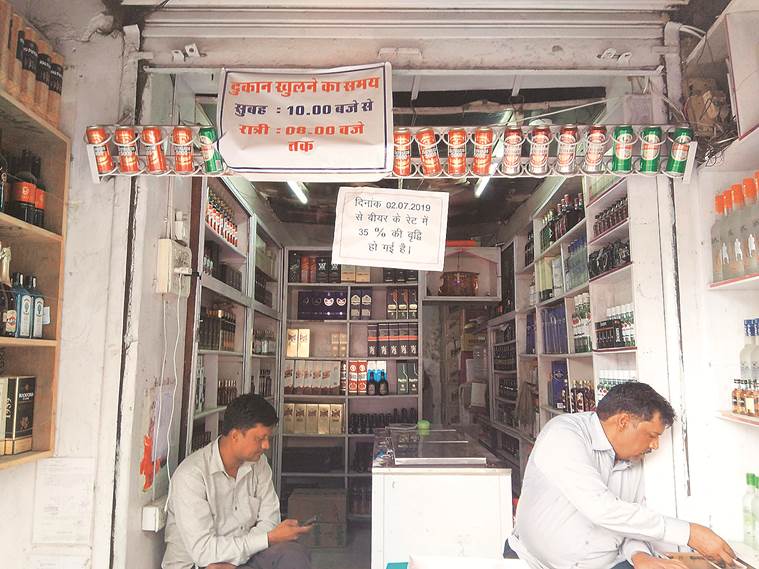
Gujarat’s favourite watering hole, and Rajasthan’s only hill station, Mount Abu is paying the price for its unique location. With an estimated 65,000-70,000 people visiting it on an average for quick weekend getaways, the debris they leave behind in the form of beer bottle remains is increasingly causing injuries to animals in this eco-sensitive zone.
Since the past two months, authorities have started a campaign asking liquor shops in Mount Abu to stop displaying beer bottles and promote beer cans instead, and also put up banners asking people to avoid beer bottles for the sake of wild animals.

Ravindra Goswami, the sub-divisional magistrate of Mount Abu, says the extent of the harm the bottles might be causing hit them recently. “This year, Mount Abu did not receive any rainfall and the water level in its famous Lake Nakki fell. We ran a campaign to clean the lake and over 10-12 tonnes of garbage was extracted from it (including) at least three-four trolleys of beer bottles. Lake Nakki is connected to the eco-sensitive zone and animals drink water from it at night,” says Goswami.
Apart from nearly 230-235 bears and 60-70 leopards, panthers, sambar deer, jungle fowls, Indian foxes, small Indian civets, wild boars and reptiles are known to inhabit the eco-sensitive zone, spread across 320 sq km in Rajasthan’s Sirohi district.
The injuries being caused to animals were first flagged by Kayzad Contractor, the president of the People for Animals in Mount Abu, who has been running a ranch for rescued animals such as horses and dogs since 2000. “My ranch is not barricaded and opens into the eco-sensitive zone. Over the years, bears and leopards have also made it their home. I have set up CCTV cameras to study the animals, and eight months ago, I noticed Jamwant, a 12-year-old male bear, limping as one of his paws seemed injured. Three months ago, Simbi, a female leopard, was seen suffering from an injury in one of her hind legs. When we visited the place during day time, we saw shards of bottles. I immediately notified the district forest officials,” says Contractor.
Balaji Kari, the District Forest Officer, says they have been struggling to monitor unruly tourists. “It is not possible to frisk each and every tourist. The worst-affected places are waterholes which are frequented by tourists during the time and by animals at night. Places such as the Gurushikhar Point (the highest point at Mount Abu) and Mini Nakki Lake have gone beyond our control.”
Excise Officer Jitendra Sodha says five wine shops and 21 restaurants have liquor licences in Mount Abu. “On weekends, the sale of liquor, including beer and IMFL, shoots up. In total, around four-five lakh bottles sell every month.”
Apart from Rajasthan, Mount Abu receives tourists from the dry state of Gujarat, with cities such as Ahmedabad and Vadodara just a four-hour drive away. Most weekends, the roads leading up to the hill station are jammed. Kari points out that people drive down for the day and, to be on the safer side while on the road, prefer beer with its low alcohol content.
Authorities suspect that a rash of recent incidents involving animals attacking humans are also linked to injuries. This month alone, bears have mauled two cattle-herders. Says Kari, “Animals get irritated when injured and, if they cannot find immediate help, end up attacking. We have set up hoardings in villages asking people to avoid venturing out in the dark.”
The increase in sale of beer cans since they started the campaign gives the authorities hope. As per Excise Department figures, while in April, 13,568 beer cans were sold, this had changed to 30,726 respectively by May, and 27,592 by June.
“Whenever customers ask for beer bottles, we insist they buy cans. Now, we have started selling 100-150 cans every day, from negligible amounts two months ago,” says Mahavir Singh, a liquor shop owner.
The local administration is next planning to deploy 30 nature guides, who will be registered with the Forest Department. They will mandatorily accompany trekking groups and prevent them littering, says Kari.